|
George C. Pimentel |
|
ACS Award in Chemical Education
Memorial Lecture, UC Berkeley
Undergraduate Award, UC Berkeley
Matrix Isolation Prizes
******
American Chemical Society
George C. Pimentel Award
in Chemical Education
Formerly known as the ACS Award in Chemical Education, it was renamed the George C. Pimentel Award after his death in 1989. An exception was made to the rule against posthumous awards, and his daughter Jan Coonrod accepted the award in his name at the 1990 awards ceremony during the ACS meeting.
The award is currently sponsored jointly by Cengage Learning and the ACS Division of Chemical Education. Its purpose is to recognize outstanding contributions to chemical education.
| ||||||||||||||||||||||||||||||||||||||||||||||||||||||||||||||||||||||||||||||||||||||||||||||||||||||||||
|
******
George C. Pimentel Memorial Lecture
This award allows the Department to invite a distinguished speaker to present a special lecture in the physical chemistry seminar series. It was initiated in 1991 by Joseph M. Jazinski, of IBM Research Center, and is currently funded by the UCB College of Chemistry.
|
******
George C. Pimentel Award
College of Chemistry, UC Berkeley
In 2002, the College of Chemistry, with the cooperation of Jeanne Pimentel, established the George C. Pimentel Award, to encourage undergraduate research in chemistry. It is given to a graduating senior who has done lab research as an undergraduate, and who is a first-generation college student, and who plans to go on to graduate study in science-related fields. The award carries a monetary prize that was started modestly with discretionary funds from the Dean of the College of Chemistry, and grows as donations increase the endowment.
The winner of the 2024 award is Anthony Lara, whose parents are from Mexico and El Salvador. Anthony grew up in Southern California, and attended Pomona College. At UC Berkeley he did research with the Martin Head-Gordon group. Since graduating, he is working in research in the Bay Area and deciding what area of science to pursue in graduate school.

Anthony Lara
******
The winner of the 2023 award is Angelica Lam, who attended Lowell High School in San Francisco, CA, and did undergraduate research at UC Berkeley on protein design software and will continue her studies there with the Computational Biology Protein Design Team.

Angelica Lam
******
The 2022 award winner is Rolin Ace Aguilar. Ace's parents immigrated from the Philippines to the US. He is the youngest of nine and grew up in Fresno. As an undergraduate at UC Berkeley he did research in biopolymer and bioplastic recycling at LBNL with the Joint Bioenergy Institute and ABPDU. He is interning at Amyris before heading to Stanford to conduct research with the Khosla group in polyketide biosynthesis and drug discovery.

Rolin Ace Aguilar
******
The 2021 winner is Yuele Zhang, who grew up in China and came to the
U.S. for her education. She attended Skyline College in San Bruno, CA, and
did a summer internship in cell culture at Tongji Hospital Transformation
Center in China. She transferred to UC Berkeley for her B.Sc. in Chemical
Biology, and did research with the Alisavatos Group on analyzing data sets
of transmission electron microscopy of nanoparticles, and understanding the
stability of nanomaterial. She will return to Berkeley for a Masters Degree in
Chemical Engineering, specializing in drug development and biotech. Her
longterm goal is to use technology to benefit people who suffer from
currently incurable diseases.
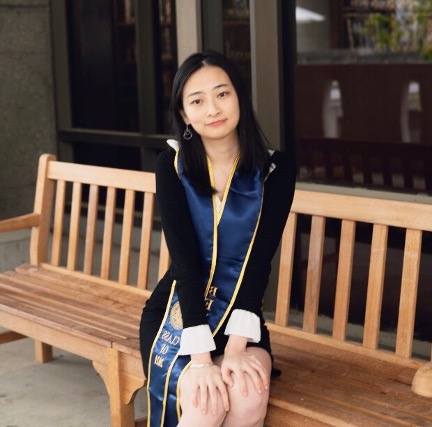
Yuele Zhang
******
The 2020 award winner is Emmanuel Cortes, whose family emigrated from Mexico to the East Bay city of Concord. Emmanuel conducted research in the John Arnold group. His research utilized computational models to investigate inorganic complexes. Emmanuel plans on attending graduate school for computational chemistry after a gap year in industry.
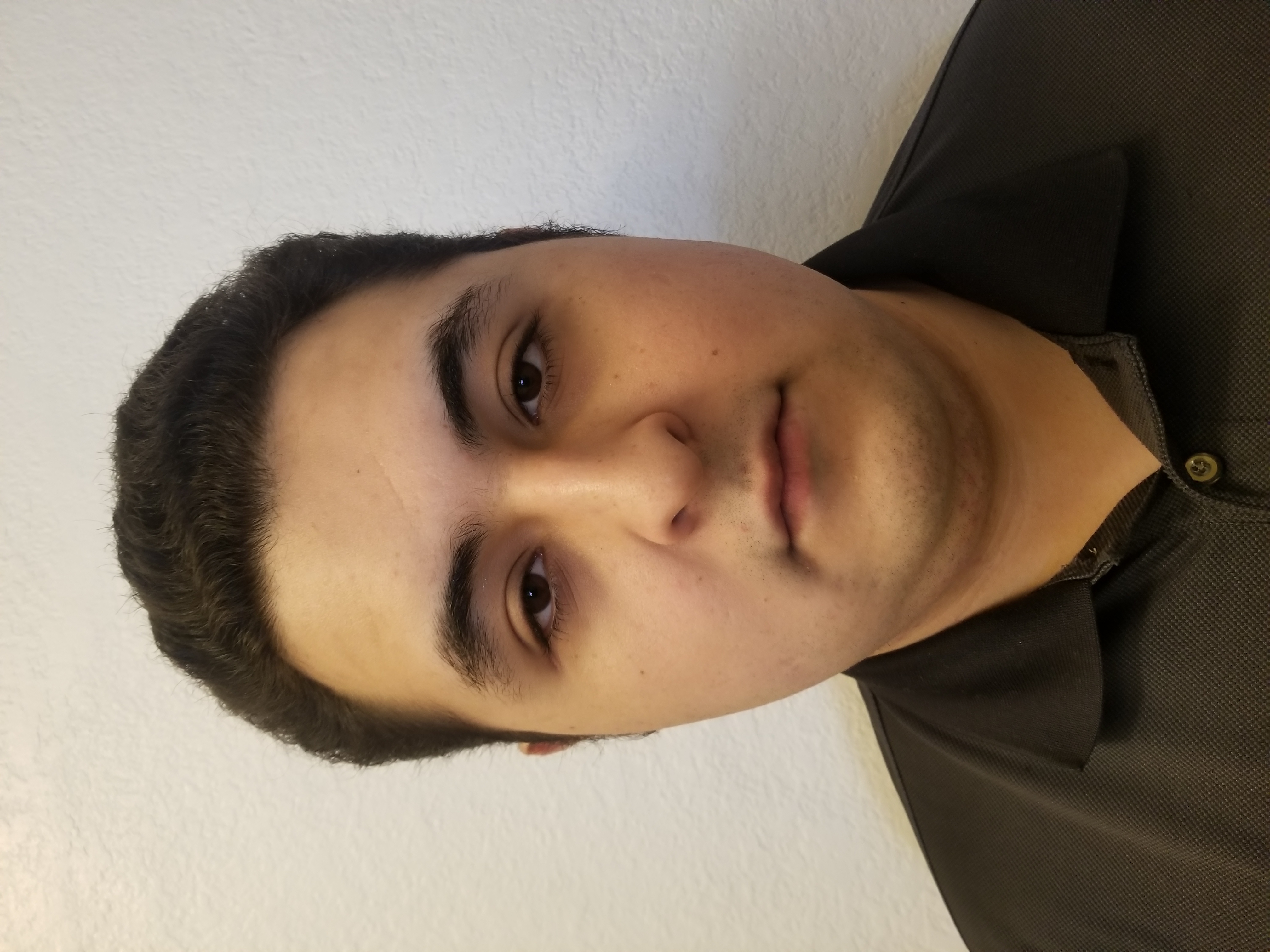
Emmanuel Cortes
******
The 2019 award winner is Robert L. Anderson, who grew up in
the small Northern California town of Salyer, and attended the
College of the Redwoods before transferring to UC Berkeley. In
the lab of Professor John Hartwig, Robert investigated Nickel-catalyzed
C-N coupling using alkyl electrophiles. During the
course of attempting a related reaction, he found a curious side
product, which upon further investigation proved to be of
interest as its own independent project. He will go on to do
graduate study at the California Institute of Technology.
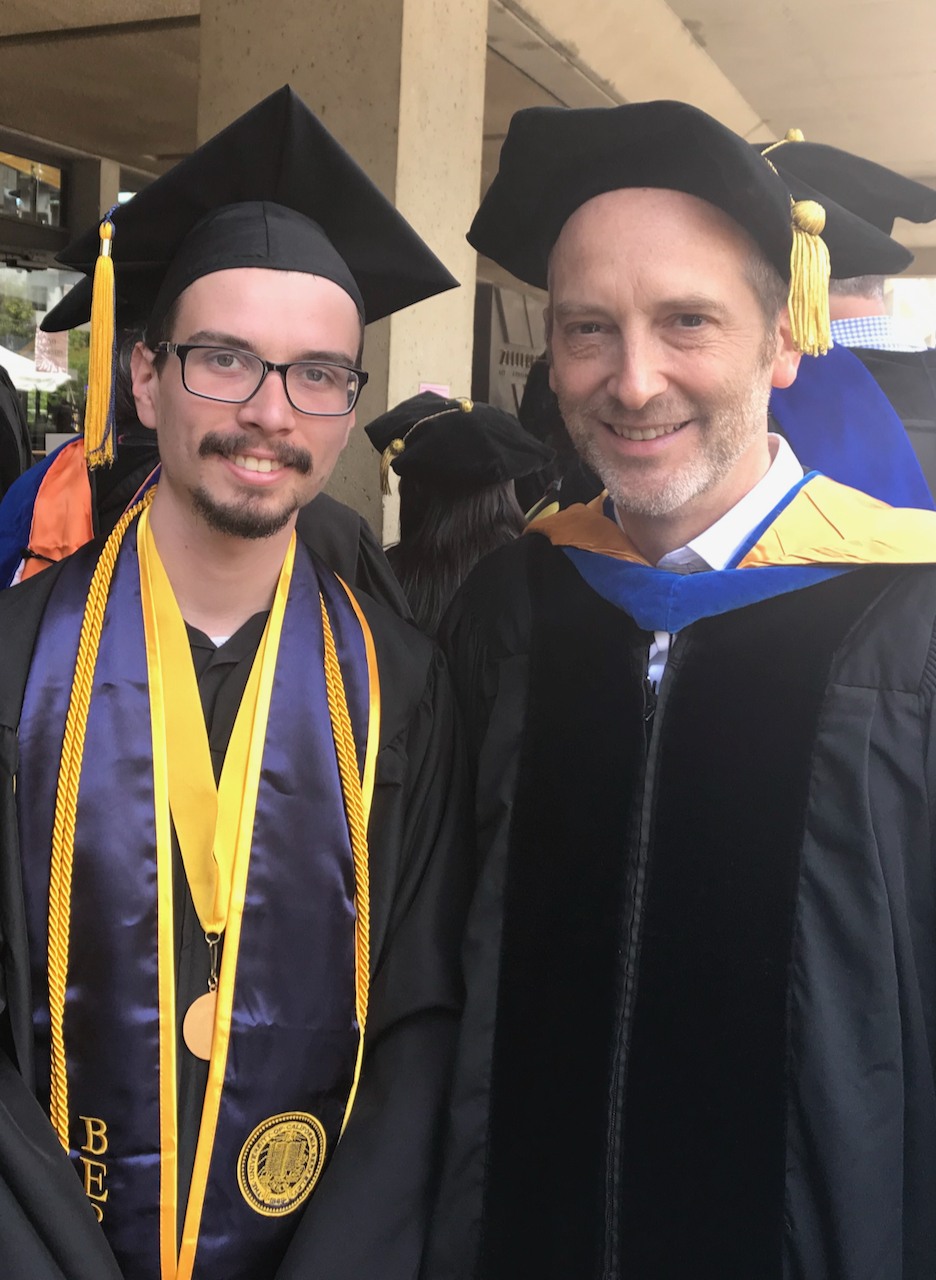
Robert L. Anderson with Prof. John Hartwig
******
The 2018 award winner is Abel Ricano, who was born in Los Angeles, California, and attended El Camino Community College before transferring to UC Berkeley in 2015 to major in Chemical Biology. For his undergraduate research with Rebecca Abergel's group at Lawrence Berkeley National Laboratory, he studied the chelation properties of siderophore inspired ligands with f-metals.
He will begin PhD graduate studies in chemistry at UC Berkeley in Fall 2018.
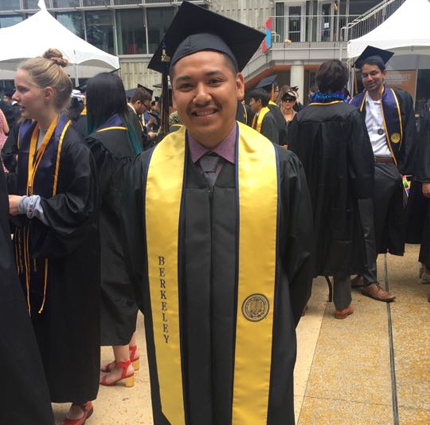
Abel Ricano
******
The 2017 award winner was Kenneth Han, whose parents emigrated from South Korea. He grew up in Koreatown, Los Angeles, and attended Fairfax Senior High School. As an undergraduate in chemical biology at UC Berkeley, he did research in the lab of Prof. Matthew Francis, studying recombinantly expressed viral capsids as potential drug delivery agents. He will pursue a PhD in chemistry at UC San Diego, and aspires to be a professor and educate the next generation of scientists.
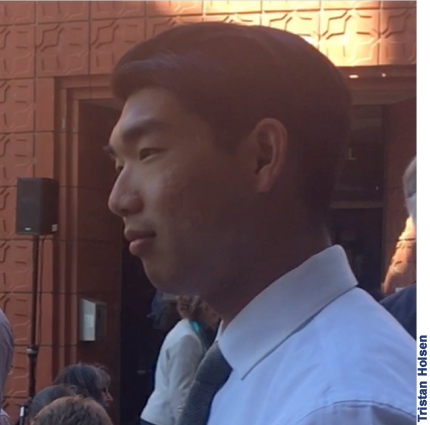
Kenneth Han
******
The 2016 award winner is Felicia Sutanto, who grew up in Jakarta, Indonesia, and moved to Los Angeles in 2010 with her sister. After learning English, she transferred to UC Berkeley in 2014, majoring in chemistry. There she joined three research groups in the nuclear engineering department. In Prof. Peterson�s group, she measured the heat transfer coefficients of Dowtherm A; in Prof. Macdonald�s group, she used FORTRAN to predict crack growth rate of 304SS; in Prof. Vetter�s group, she was part of RADWATCH, a radiation monitoring program. Felicia will pursue her PhD in nuclear engineering at the University of Michigan Ann Arbor, focusing on radiochemistry application for nuclear non-proliferation purposes with Prof. Igor Jovanovic.
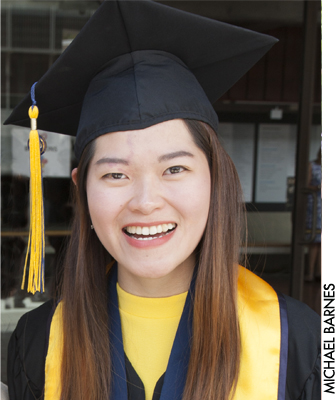
Felicia Sutanto
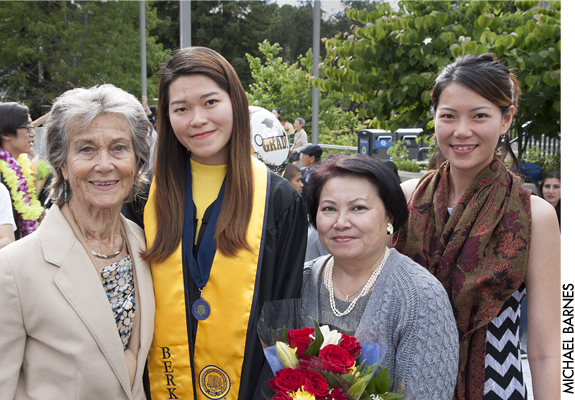
Felicia Sutanto with her mother and sister, and Jeanne Pimentel on the left
******
The 2015 winner is Thomas Khanh Hung Le, whose family came to California from Vietnam. Thomas has done work in the Michelle Chang group on enzymatic production of butanol using E. coli and in the Graham Fleming group on a kinetic model for nonphotochemical quenching. He plans to go to medical school after a year of broadening experiences such as an internship in Japan.
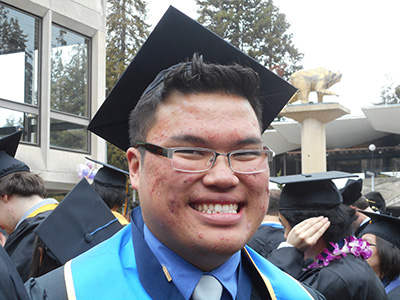
Thomas Khanh Hung Le
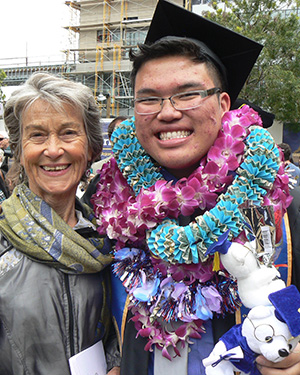
Thomas Le with Jeanne Pimentel
******
Julie Ming Liang is the winner of the 2014 award. Her parents emigrated from South China to the Bay Area, where Julie was born. She did research with Professor Jamie Cate, studying enzymes involved in cell wall degradation. For the next year she plans to travel and take internships in various labs while applying to graduate school at major U.S. research institutions.
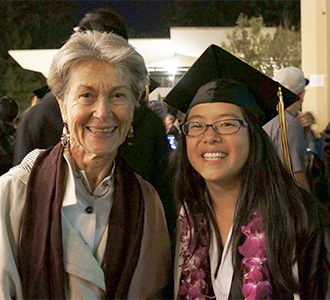
Julie Ming Liang with Jeanne Pimentel
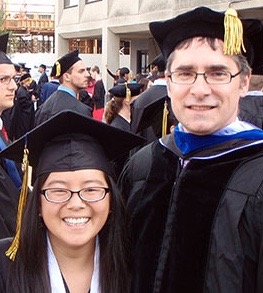
Julie Ming Liang with Prof. Jamie Cate
******
Samuel Hin-Yuen Ho was the winner of the 2013 award. He did research in the lab of Ron Zuckermann at the Molecular Foundry. He went on to do graduate work at the California Institute of Technology.
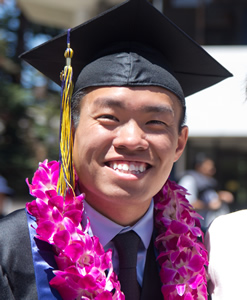
Samuel Hin-Yuen Ho
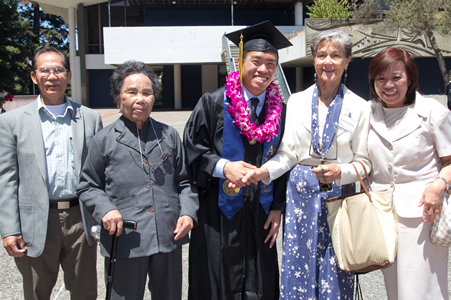
Sam Ho and family with Jeanne Pimentel
******
Ieng Chim (“Steven”) Wan was the winner of the 2012 award. He did undergraduate research with Professor Andrew Streitwieser. In 2013 he went to the University of Groningen, in the Netherlands, to do experimental research on coordination chemistry and, after getting his Masters degree, plans to work on a Ph.D. there in theoretical chemistry.
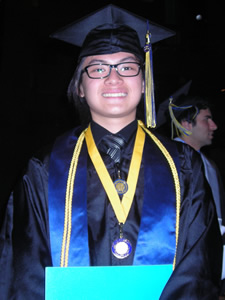
Ieng Chim Wan
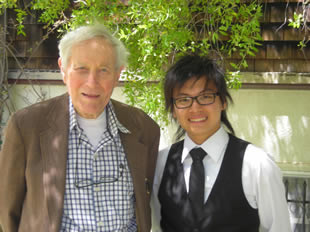
Ieng Chim Wan with Prof. Streitwieser
******
Bao Tran Ngoe Truong was the winner of the 2011 award. Born in Vietnam, she went to high school in Singapore, where she won a scholarship to UC Berkeley. She worked in Professor Jean Fr�chet�s group on self-healing hydrogels with dendritic molecular binders, and then on SiRNA delivery systems. For the next year she worked as a research engineer at the Institute of Chemical and Engineering Sciences in Singapore, and is now a graduate student at Massachusetts Institute of Technology.
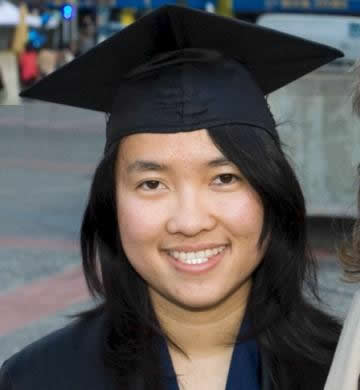
Bao Tran Ngoe Truong
******
The winner of the 2010 award is Jingwei Zhang, who comes from Shanghai, China, and majored in Chemical Biology at UC Berkeley. His undergraduate research, supervised by Professor Judith Klinman, lies in the field of enzymology, studying the role of protein dynamics in enzyme catalysis. He will be returning to UC Berkeley to pursue graduate studies in Bioengineering.
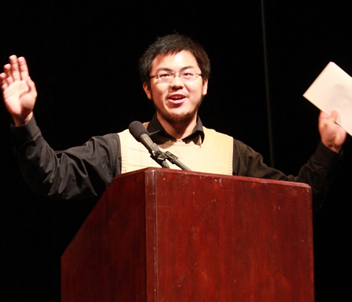
Jingwei Zhang
******
Raja Ravinel Narayan is the winner of the 2009 award. His father came from Fiji and settled in Union City, California. Raja did undergraduate research with Professor Richmond Sarpong, on synthesizing analogs of the molecule lyconadin A, which potentially could be used in treating disease; he is currently applying to medical schools.
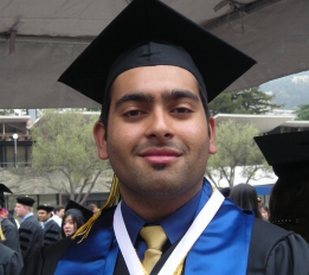
Raja Ravinel Narayan
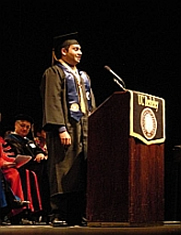
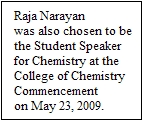
******
Huiyang Winnie Liang is the winner of the 2008 award. She came to San Francisco from China with her family in 1996, and graduated from Galileo High School. Her undergraduate research was in Professor Paul Alivisatos's group, working with graduate student Shelley Claridge, on isolation of discrete nanoparticle-conjugates using anion exchange HPLC. She will spend the next year at the National Institutes of Health, as an intern, working on malaria-related projects, and applying to graduate school in chemical biology
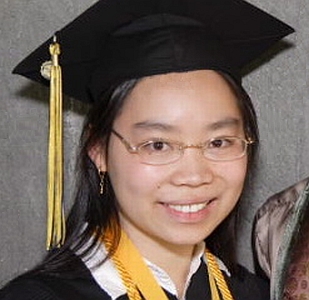
Huiyang Winnie Liang
******
The 2007 award goes to Dylan Arias, who did research with Professor Ron Cohen on atmospheric chemistry. He also participated in the College of Chemistry Scholar's Program and became an articulate and invaluable student tutor. He graduated from Edison High School in Fresno, and will pursue graduate studies at Massachusetts institute of Technology in Fall 2007.
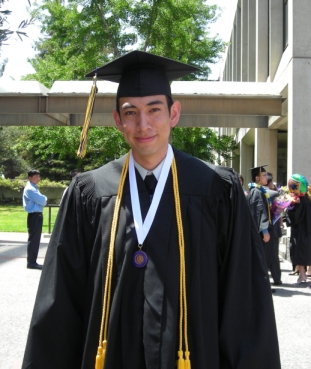
Dylan Arias
******
The winner of the 2006 award is Lok Him Yu, who also worked with Ahamindra Jain. He did two research projects, one on inhibitors of flu virus infection, and another on developing agents for imaging and treatment of prostate cancer; he also trained other students. He plans to work for a pharmaceutical company before going to grad school in chemical biology. Born in Hong Kong, he came to California at the age of seventeen with his family.
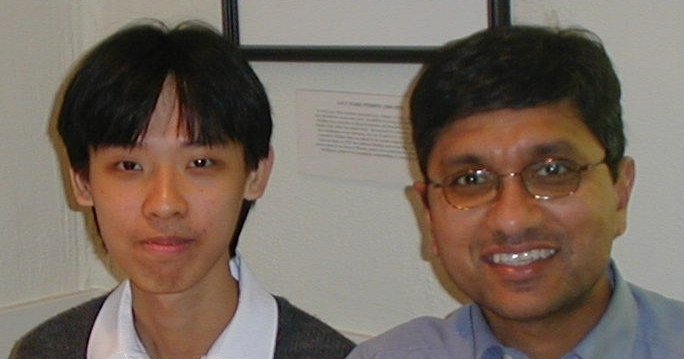
Lok Him Yu with his research director, Ahamindra Jain
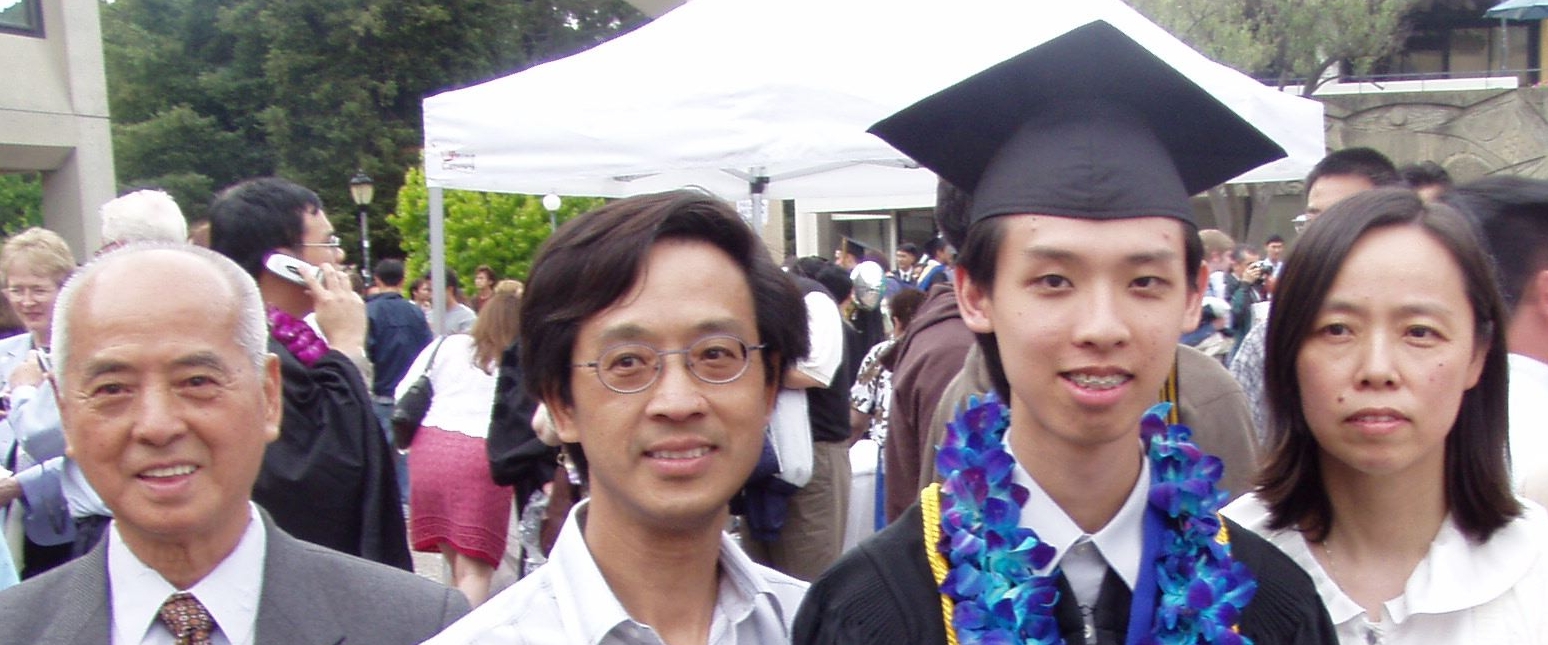
Lok Him Yu with his grandfather, father, and mother
******
The 2005 award winner is Zaihleen Shariff Keller. who is from Canada; her Indian parents emigrated there from Kenya. She did undergraduate work with Ahamindra Jain on synthesis of a compound for possible use in cancer treatment, and she also mentored other students. She is considering medical school as one of several graduate options.
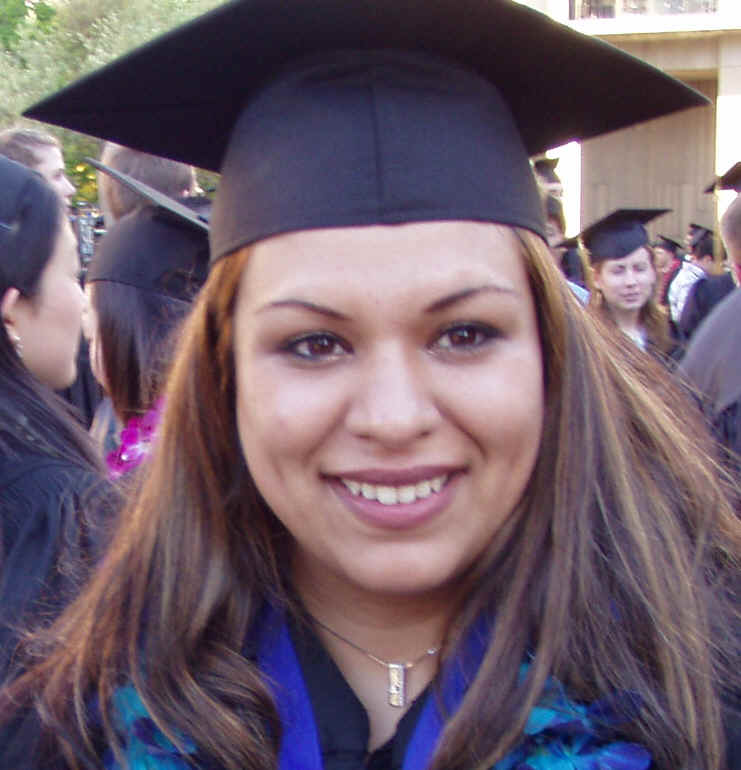
Zaihleen Shariff Keller
******
The 2004 recipient of the award was Irena Dragojevic An immigrant from Serbia, she had to master English before being accepted at UC Berkeley, where she did undergraduate research with Professors Herb Strauss, Luciano Moretto, and Heino Nitsche. She went on to do graduate work at UCLA in nuclear chemistry.
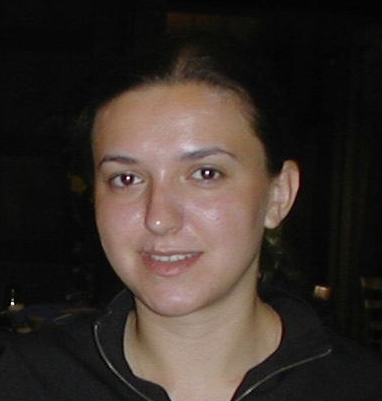
Irena Dragojevic
******
The 2003 award went to Cesar Napoleon Mejia. His family is originally from Nicaragua; he graduated from Bell High School in Southern California, where he was valedictorian. His research was on excited states of bromine-containing molecules of atmospheric significance, with Professor Martin Head-Gordon as his advisor. After graduation he was accepted as an intern at NASA-Ames Research Center.
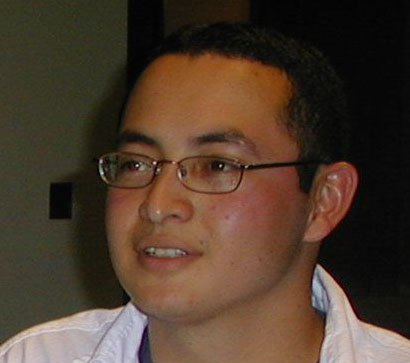
Cesar Mejia
******
The first award was given at Commencement, 2002, to Victor Tam, a student from a small town in California's Central Valley-as George was. He went on to do graduate work at UC San Diego.
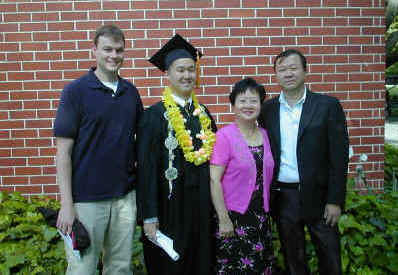
Victor Tam with his parents, Patricia and Tom Tam,
and Professor Matt Francis
******
George C. Pimentel Prizes for Advances in Matrix Isolation
This was awarded for the first time in 2005, at the international meeting of the Matrix Conference, in
Funchal, Madeira, Portugal, marking the 50th anniversary of Pimentel's invention of the matrix isolation technique. Awarded by the
Organizing Committee of MATRIX 2005 and the Association of the Matrix-Isolation World
Community, the main prize recognizes outstanding contributions to matrix isolation spectroscopy. It was first proposed by Werner
Klotzbuecher, editor of the MIDE newsletter. The award is in the form of a certificate together with a cash prize 1500 Euros, and a unique figure from the Lichtenberg collection.
There is also an award for the Best Poster presented at the meeting, sponsored in 2005 by the Portuguese Chemical Society. This award is in the form of a certificate together with a cash prize of 250 Euros, and a medal. The major criteria for selecting the winner are the scientific content and originality of the work, the potential impact, and the clarity of the poster. While not restricted to students, this award obviously encourages student participation, in the Pimentel tradition.
The winner of the main 2005 award was:
Marilyn Jacox, Senior Scientist (retired) of INISTE, who at one time worked closely with Professor Pimentel and his graduate student, the late Dolphus Milligan. Dr. Jacox was not at the conference, but she sent a slide that she used in lectures, of George Pimentel's portrait with a definition of the matrix isolation technique
(click here for slide).
The second finalist was:
Lester Andrews, Professor, University of Virginia, who was a graduate student with George Pimentel.
The third finalist was:
Markuu R�s�nen, Professor, University of Jyv�skyl�, Finland.
The winner of the Best Poster award was:
Antii Lignell, of Markuu R�s�nen's research group.
The 2007 prize was awarded to Dr. Lester Andrews, of the University of Virginia, at the Gordon Research Conference on Matrix-Isolated Species, at Bates College, Maine, USA
The award is given biennially.
The 2011 prize was awarded to William Weltner,
The 2013 prize was awarded to Vladimir E. Bondybey,
Copyright © 2003 - 2018 Jeanne Pimentel